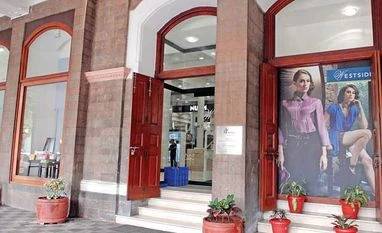Local sourcing norms in single-brand retail are being reviewed all over again. The government may cut the mandatory requirement of 30 per cent local sourcing, which any single-brand retailer with more than 51 per cent foreign direct investment (FDI) has to comply with, by half.
If executed, this would attract multinationals such as Apple, which have stayed away from India due to stringent local sourcing rules.
Recently, top government officials deliberated on a proposal to cap sourcing from Indian entities at 15 per cent for single-brand retailers with FDI exceeding 51 per cent.
A proposal is also on the table to offset the sourcing norms for domestic use against that for global operations. Among others, the government’s think tank NITI Aayog has backed these proposals.
Earlier this year, Apple’s application for setting up stores in India got stuck over the sourcing conditions, and the Cupertino-headquartered firm was told to re-apply. Apple CEO Tim Cook met Prime Minister Narendra Modi during his India visit in May and discussed easing of rules to set up shop in India as well as starting manufacturing in the country. India is a fast-growing consumer market for Apple but the company sought complete exemption from local sourcing for setting up fully-owned stores.
This is not the first time when sourcing norms have been tweaked. Soon after allowing 100 per cent FDI in single-brand retail in 2012, the Manmohan Singh-led UPA government had revised the sourcing norms as Swedish furnishing major IKEA had said it would not be able to adhere with the stringent guidelines. After that, the government changed the norms from “mandatory sourcing from local small and medium enterprises” to “mandatory sourcing from India, preferably from MSMEs’’.
That helped Ikea go ahead with its investment of Euro 1.5 billion, the largest in the segment so far. Besides Ikea, top brands such as H&M have opted for fully-owned stores in the country.
Currently, 100 per cent foreign investment is allowed in single-brand retailing. Up to 49 per cent foreign investment is under the automatic route and the approval from the foreign investment promotion board (FIPB) is required beyond that. The local sourcing norm kicks in when FDI goes beyond 51 per cent.
If executed, this would attract multinationals such as Apple, which have stayed away from India due to stringent local sourcing rules.
Recently, top government officials deliberated on a proposal to cap sourcing from Indian entities at 15 per cent for single-brand retailers with FDI exceeding 51 per cent.
A proposal is also on the table to offset the sourcing norms for domestic use against that for global operations. Among others, the government’s think tank NITI Aayog has backed these proposals.
Earlier this year, Apple’s application for setting up stores in India got stuck over the sourcing conditions, and the Cupertino-headquartered firm was told to re-apply. Apple CEO Tim Cook met Prime Minister Narendra Modi during his India visit in May and discussed easing of rules to set up shop in India as well as starting manufacturing in the country. India is a fast-growing consumer market for Apple but the company sought complete exemption from local sourcing for setting up fully-owned stores.
This is not the first time when sourcing norms have been tweaked. Soon after allowing 100 per cent FDI in single-brand retail in 2012, the Manmohan Singh-led UPA government had revised the sourcing norms as Swedish furnishing major IKEA had said it would not be able to adhere with the stringent guidelines. After that, the government changed the norms from “mandatory sourcing from local small and medium enterprises” to “mandatory sourcing from India, preferably from MSMEs’’.
That helped Ikea go ahead with its investment of Euro 1.5 billion, the largest in the segment so far. Besides Ikea, top brands such as H&M have opted for fully-owned stores in the country.
Currently, 100 per cent foreign investment is allowed in single-brand retailing. Up to 49 per cent foreign investment is under the automatic route and the approval from the foreign investment promotion board (FIPB) is required beyond that. The local sourcing norm kicks in when FDI goes beyond 51 per cent.
After companies such as Apple, keen to set up shops for iPhones, expressed reservations against these norms, the Modi government allowed companies bringing “state of the art” and “cutting edge” technology to set up stores without local sourcing norms for a period of three years of the opening of the first store. But officials in the Department of Industrial Policy and Promotion (DIPP) under the Commerce Ministry are yet to define what is “cutting edge”. While a DIPP-led panel had earlier classified Apple under the cutting edge category, which encouraged the company to apply for India stores, Foreign Investment Promotion Board (FIPB) refused to entertain such a classification. It was then that Apple was told to apply again under the new rules.
Recently, the US asked India to relax its stringent local sourcing norms in the single-brand retail that has prevented Apple from opening its stores in the country. “The US encouraged India to consider relaxing local sourcing requirements in single brand retail trade. India mentioned recent FDI reforms providing relaxation in local sourcing norms in specific cases,” a joint statement issued by the US and India after the bilateral trade policy forum meeting in New Delhi had said.
)